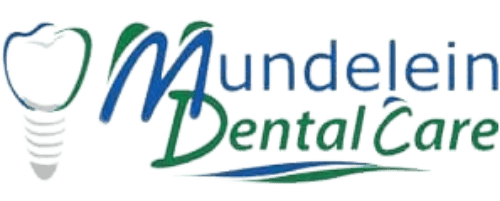What should you expect after oral surgery to ensure a smooth recovery? After oral surgery, understanding the healing process is crucial for a successful outcome, as it involves managing discomfort and allowing time for tissues to repair. By being informed about the typical recovery journey, you can better navigate the days following your procedure.
after oral surgery
Understanding the different types of oral surgery procedures can help set expectations for the recovery process. Common procedures include tooth extractions, which are often necessary for impacted wisdom teeth or severely decayed teeth. Dental implants are another frequent type of oral surgery, involving the placement of metal posts into the jawbone to support artificial teeth. Other procedures might include corrective jaw surgery, which addresses issues with jaw alignment, and biopsies, which are performed to diagnose oral health conditions.
Each type of oral surgery comes with its own set of recovery protocols and timelines. For instance, after oral surgery like a tooth extraction, patients might experience swelling and discomfort, while dental implant surgery may require a longer healing period for the bone to integrate with the implant. Understanding these differences is crucial for managing expectations and planning for a smooth recovery. For more detailed information on these procedures, you can explore What Is Oral Surgery and Why Is It Important?
Factors Affecting Surgery Duration
The duration of oral surgery can vary significantly based on several factors. One of the primary considerations is the complexity of the procedure itself. Simple extractions or minor surgeries may be completed relatively quickly, while more intricate operations, such as those involving multiple teeth or extensive bone work, can take longer. Additionally, the patient’s overall health and medical history can influence the time required for surgery. Conditions such as high blood pressure or diabetes may necessitate additional precautions, potentially extending the duration of the procedure.
Another factor that can affect the length of oral surgery is the experience and expertise of the surgical team. Skilled professionals with extensive experience in oral surgery are often able to perform procedures more efficiently, which can reduce the time spent in surgery. Furthermore, the use of advanced technology and techniques can also play a role in determining how long a procedure will take. For those seeking more information about oral surgery, the Mundelein Oral Surgery Professionals provide valuable insights into what to expect after oral surgery.
Pre-Surgery Preparation Time
Understanding the importance of pre-surgery preparation time can significantly impact your recovery after oral surgery. This phase involves organizing your schedule and environment to ensure a smooth transition into the healing process. By setting aside time to prepare, you create a supportive atmosphere that can help ease the stress associated with surgical procedures. This preparation period allows you to focus on your well-being and ensures that you have everything in place for a comfortable recovery after oral surgery.
Average Time for Common Surgeries
Understanding the average time for common oral surgeries can help set realistic expectations for your recovery journey. Procedures such as wisdom tooth extraction typically take about 45 minutes to an hour, while more complex surgeries like dental implants may require a few hours. Recovery times can vary based on the complexity of the surgery and individual healing rates, but most patients can expect to resume normal activities within a few days to a week after oral surgery. For more information on oral health and recovery, visit Mundelein Dental Care at Mundelein Dentist.
Recovery Time Post-Surgery
Understanding the recovery time after oral surgery is crucial for anyone undergoing such procedures. The healing process can vary significantly depending on the type of surgery performed and the individual’s overall health. Generally, the initial recovery period may last a few days to a week, during which patients might experience swelling, discomfort, and limited ability to perform regular activities. Complete recovery, however, can take several weeks as the body gradually heals and adjusts. It’s important to follow any specific guidelines provided by healthcare professionals to ensure a smooth recovery after oral surgery.
Anesthesia and Its Impact
After oral surgery, understanding the role of anesthesia is crucial for a smooth recovery process. Anesthesia is used to ensure comfort and pain management during the procedure, but its effects can linger as you transition into the recovery phase. It’s common to experience grogginess, dizziness, or even mild confusion as the anesthesia wears off, which can impact your ability to perform daily activities immediately after oral surgery. The body’s response to anesthesia varies from person to person, influencing how quickly one might regain full alertness and normal function. Being aware of these potential effects can help in anticipating the initial stages of recovery after oral surgery.
Surgeon Experience and Efficiency
When it comes to recovery after oral surgery, the experience and efficiency of your surgeon play a crucial role in the overall process. A seasoned surgeon with a track record of successful procedures can significantly impact the outcome and recovery time. Their expertise ensures that the surgery is performed with precision, minimizing potential complications and promoting a smoother healing journey. Efficient surgical techniques, honed over years of practice, contribute to reduced operative times and less trauma to the surrounding tissues, which can enhance the recovery experience. As you navigate the period after oral surgery, knowing that your procedure was handled by a skilled professional can provide peace of mind and confidence in your path to recovery.
Patient Health Considerations
After oral surgery, patient health considerations play a crucial role in the recovery process. Understanding the body’s natural healing mechanisms and recognizing the importance of rest and nutrition can significantly impact the overall outcome. It’s essential to be aware of any pre-existing health conditions that might affect recovery, as these can influence how the body responds after oral surgery. Monitoring for any unusual symptoms and maintaining open communication with healthcare providers ensures that any potential complications are addressed promptly. By prioritizing health considerations, patients can support their body’s ability to heal effectively after oral surgery.
Post-Operative Care Instructions
After oral surgery, adhering to post-operative care instructions is crucial for a smooth recovery process. These guidelines are designed to help manage discomfort and promote healing, ensuring that the affected area is protected and allowed to recover properly. Following the specific instructions provided by your healthcare professional can significantly impact the success of your recovery. It’s important to understand the steps involved in maintaining oral hygiene, managing swelling, and recognizing signs that may require further attention. By focusing on these aspects, you can support your body’s natural healing process after oral surgery, leading to a more comfortable and efficient recovery period.
Conclusion
After oral surgery, ensuring a smooth recovery is crucial; for any questions or concerns, feel free to call 847-566-5560 or check out our Google Maps reviews.

